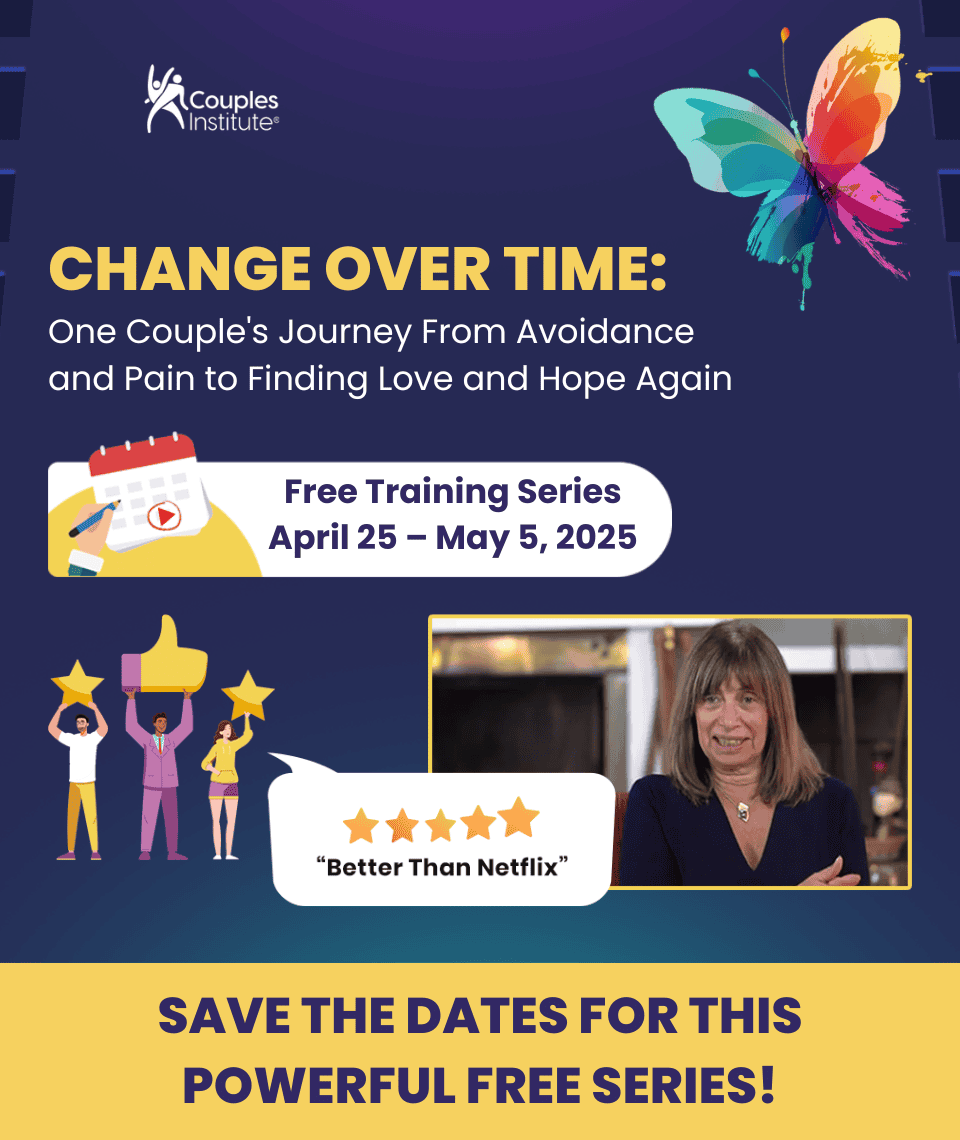With one Exercise–Guaranteed!
Want to improve your ability and your self esteem as a couples therapist? You can, with one exercise. This one exercise won't be easy or simple, but it will be effective and will pay dividends for years to come.
The problem. Couples enter therapy and after the initial sessions a common pattern emerges. They begin the sessions reporting on the fight of the week. Each person trots out their complaint and hopes you will somehow wave a magic wand and bring relief by fixing their partner. They are not eager to hear you ask, “Well, what is each of you willing to do to change these patterns?” They hope, expect and want answers from you.
The second variation is when couples come in and say they really don't have much to talk about and would like a suggestion from you. They really haven't thought about their objectives for the session (and they have forgotten what they discussed last session) and now hope you will give them the appropriate focus.
If you're not on your toes, the therapy process can easily get bogged down into wandering around without focus. You can give nifty insights into how the present patterns may recreate earlier life experiences. Perhaps you help them see the function or dysfunction of their behavior. You offer some homework. Then inertia (passivity and forgetfulness) sets in and the next week the wandering begins anew. The longer the pattern goes on, the harder it is to reverse.
Here is one antidote:
Define your role clearly and be explicit about what you expect from them. How you define these roles will vary from couple to couple depending on the circumstances and diagnosis; however, there are also some consistent principles that apply to most couples.
Toward the beginning of the initial session you might say, “Here is what I would like to cover in our first sessions. I'd like to understand your current distress and how it fits into the history of your relationship. It's also important for me to understand the kind of relationship you wish to develop and the kind of partner each of you would need to be in order to create the desired relationship. We will also cover what you can expect from me in our sessions and what I expect from you.”
We believe that by the end of the first two sessions it is important for you to define yourself including,
1. What you have to offer
2. What you expect from your couple
Here is the first part of the exercise:
Define your role–what you expect of yourself and what your couples can expect of you. This is a soul-searching exercise. I (Pete) have been refining mine for about ten years, and I can now give couples a document that clarifies my role and how they can get the most from our work together. It has been the single most difficult and effective thing I have done to organize multiple contradictory thoughts about my role in couples therapy. These contradictions were easy to juggle when they bounced randomly in my head. But when I began writing them out, I saw the amazing number of impossible inconsistencies I took into the office–and I was forced to sort them out.
To get started, write down three things you know you offer. For example you might write:
1. I actively intervene into your negative, repetitive cycles.
2. I give concise feedback about where I see you being stuck.
3. I coach you in learning new skills so you stop triggering negative reactions in your partner.
Then take the three you have listed and write them into a paragraph. It might sound like this: “I'm not here to judge your fights or take sides. I am here to help you each make significant improvements in how you communicate and connect with each other without violating your core values. I will intervene actively in your negative cycles to give you clear and concise feedback about where I see you are stuck. I will describe and teach you skills to get unstuck.”
Now repeat the exercise, listing another set of three things that you offer. Next integrate those three into a paragraph. Do this again. If you work and rework this several times, you will define yourself more clearly. You will have strong statements you can make to any couple in the first session to set the trajectory for therapy.
Writing out the role expectations will help enormously in clarifying what you offer. This exercise helps you get back on track when you are wondering what to do in repeating “go-nowhere” patterns. It also helps you give a crisper response when clients ask, “So how do you work?”
This is just the beginning. Next month we'll discuss how to clarify what you expect from your couples.


 We respect your privacy.
We respect your privacy.




This is an extremely helpful exercise. It helps to both define within myself what I am providing, and clearly communicates what my role is–and isn’t–to clients.